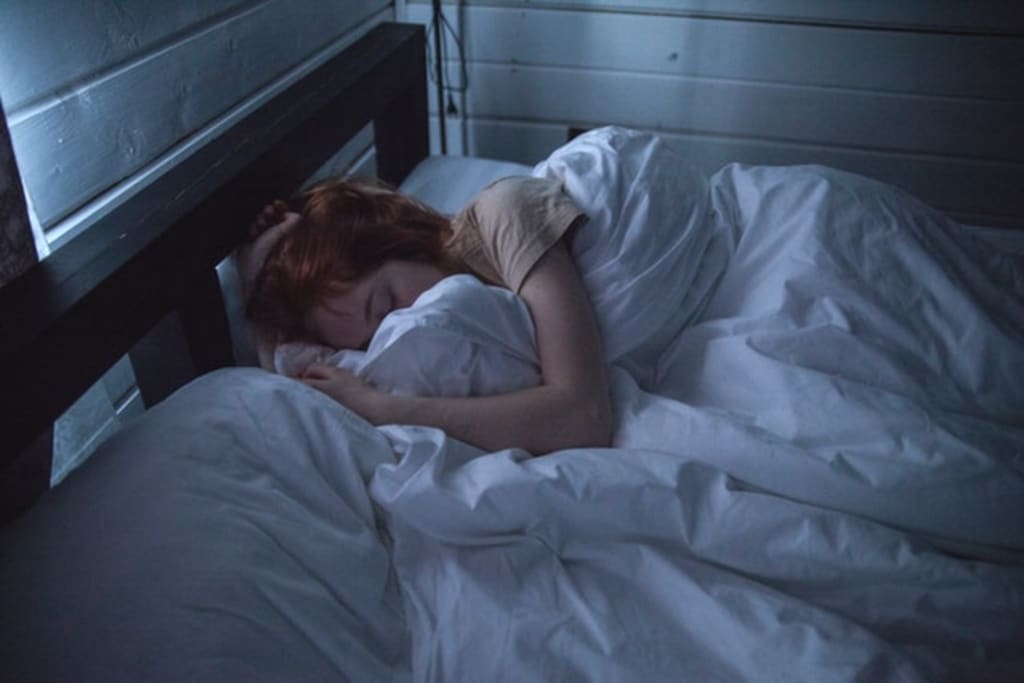Getting the Most Out of Your Perfect Night's Sleep
So, you've finally worked out your schedule so that you're, for the most part, getting the recommended eight hours of sleep per night.

So, you’ve finally worked out your schedule so that you’re, for the most part, getting the recommended eight hours of sleep per night. Which is great, but it seems like just tacking on an hour or two of Zs isn’t really helping. Maybe you’re tossing and turning all night, too focused on worrying about the day ahead to doze off. Or perhaps you get to sleep fine, but clawing your way out of bed at the chime of your alarm is harder than ever. Regardless of your sleeping woe, you probably have room for improvement where your sleep quality is concerned. Read on to learn how you can get the most out of the eight hours you’ve got.
1. Keep a Steady Schedule
Your body craves routine. That’s why your stomach starts rumbling right at noon, and why you feel less energetic when you skip a workout. In order to get the best sleep possible, it is imperative that you find a time to get to sleep and rise in the morning that works for you—and stick to it. And yes, that includes the weekends!
Need to shift your sleep schedule? If a change at work or for a personal goal requires you to wake up an hour earlier than usual, shift your sleep 15 minutes earlier each day until you hit the proper time, instead of suddenly waking up at a new time. Don’t forget to go to bed earlier to make up for it.
2. Practice Healthy Habits
Not only are smoking and drinking to excess bad for your health, but they’re also bad for your sleep. The nicotine in cigarettes is a stimulant, which, similar to caffeine, wakes you up instead of winding you down. As a depressant, alcohol might help you get to sleep more quickly, but can cause frequent awakenings, night sweats and the need to go to the bathroom in the middle of the night.
Exercising regularly is great for your quality of sleep. According to the National Sleep Foundation, exercising in the afternoon has been shown to help you fall asleep more easily. Just make sure you don’t exercise right before bed — doing so can make it harder to fall asleep.
3. Create a Comfortable Sleeping Environment
Spend some time considering the environment you’re sleeping in. What is keeping you from falling asleep, or waking you in the middle of the night—noisy neighbors? Try a white noise machine. The temperature? The optimal temperature for sleeping is in the low to mid 60s. Is your room painted a glaring color like red, which is proven to energize you instead of calming you down? Try calling in some interior and exterior painters to find a more relaxing shade. Curtains let in too much light? You can trade them for blackout blinds or just put on a sleep mask. Whatever the issue, it is worth it to invest in whatever will help you get a better night’s sleep.
Or is it your mattress that keeps you tossing and turning? When you consider that we spend literally a third of our lives asleep, you start to realize the importance of a comfortable bed! If there’s one area of your life where you should splurge on yourself, let it be on a mattress that doesn’t hurt your back. Don’t forget a high quality mattress and bedding to go along with it.
4. Stop Napping
You may rely on power naps to get you through the afternoon, but here’s the kicker: that burst of energy will cost you later when you want to get a long night’s sleep. Instead of relying on napping, wake yourself up with something active, like going up and down a few flights of stairs or taking a brisk walk around the block. As I mentioned in point number two, both of these activities will also be good for your sleep in other ways.
If you must nap, limit it to half an hour a day at most. Ever hear of a caffeine nap? Here’s how it works: drink a cup of coffee right before taking your nap. Set an alarm for twenty minutes and get some shuteye. By the time the alarm goes off, the caffeine will have kicked in and you can jump right into your next activity.
5. Be More Mindful of How You Eat
The food you put into your body can have a powerful influence on the quality of your sleep — especially what you eat from dinnertime onward. For the best sleep, dinner should not be a big meal, especially if you’re eating late. Avoid extremely fatty foods in the evening because they take a long time to digest. You don’t want your body to still be working on breaking down your dinner while you’re trying to get to sleep.
6. Get a Better Alarm, and Get Better at Using It
It’s no wonder most of us loathe the alarm clock. The stressful sound jolting us awake far too early in the morning can set a sour tone for the whole morning. But it doesn’t have to be this way—a whole world of better alarm clocks awaits! There are all kinds of apps that exist to wake you up with gentler sounds, or that even claim to track your REM cycles as you sleep and wake you at just the right time. Some wristbands like the Fitbit can be set to vibrate to wake you up. There are even fancy controllers that will gently raise the lights in your bedroom until you wake up, mimicking the rising sun. Not all of these options will work for everybody, but if you try them you’re likely to find one that works for you.
Then there’s the snooze button. Some of us hit this routinely, two, three or even more times. You might even set your alarm clock extra early to account for the extra times you’ll press snooze. Here’s the problem: nine minutes isn’t enough to sink back into any kind of meaningful sleep, so you’re effectively just prolonging a period of restlessness. The solution? Train yourself to stop pressing snooze. After the first few—or few dozen—times of forcing yourself out of bed on the first ring, it won’t seem as necessary any more. You’ll feel less rushed in the morning and won’t end your night of sleep on a bad note.
About the Creator
Courtney Gordner
Courtney Gordner is a blogger/journalist who loves to write. While she enjoys writing about a variety of topics, internet marketing and social media are her favorites.






Comments
There are no comments for this story
Be the first to respond and start the conversation.